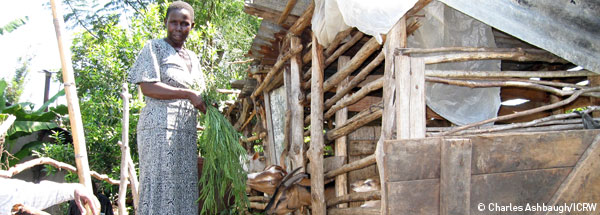
Ringing potential
Media Contact
Out in a rural village in Western Kenya, two hours from the nearest large town, and all I could think about were cell phones.
I was following up on a workshop ICRW had here earlier this year, and midway through a conversation with Esther, a local small-scale farmer, she pulled out her cell phone. I was a bit surprised to see one in Katito, a village where houses are made mostly of mud and thatch. I asked her if cell phones were common here. “Yes,” she said, “most households in the village have them.”
I knew that Kenya was at the center of cell phone innovation and transmission, but I had no idea the extent to which it had taken off. Many people use them to access their M-PESA account, a mobile banking account that can be used to pay bills and school fees, buy airtime and transfer money to family and friends – all within the touch of a button. And recently, M-PESA partnered with a local bank to directly link mobile accounts to formal banking accounts and facilitate access to other financial services, such as credit.
This got me thinking: Cell phones have great potential to economically strengthen women in developing countries. Women with bank accounts that only they can access could give them greater control over their money. And with such control, they’re likely to have more say in decisions at home. Women could also increase their agricultural productivity and income by using cell phones to get information on market prices. Or they could use the phone to receive technical advice for their crops. Given the creative atmosphere in Kenya, the possibilities this technology can create for women are very exciting!

